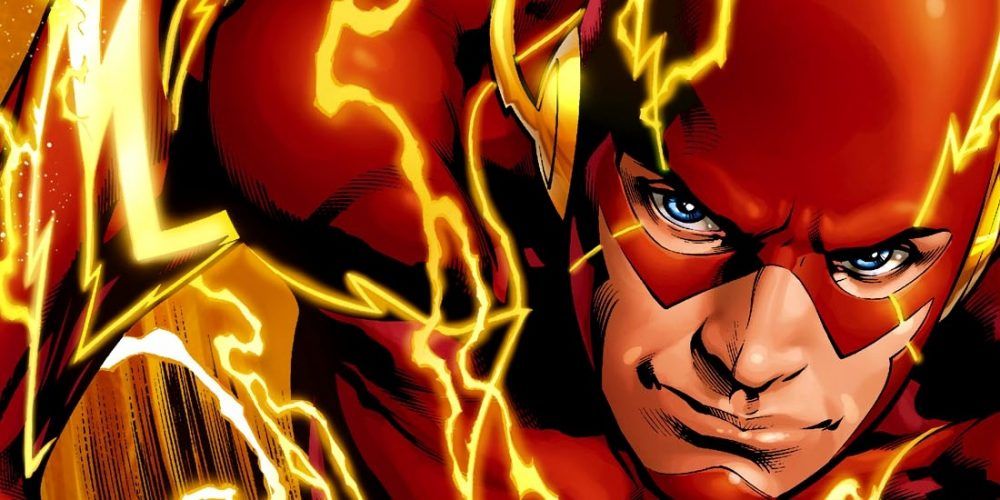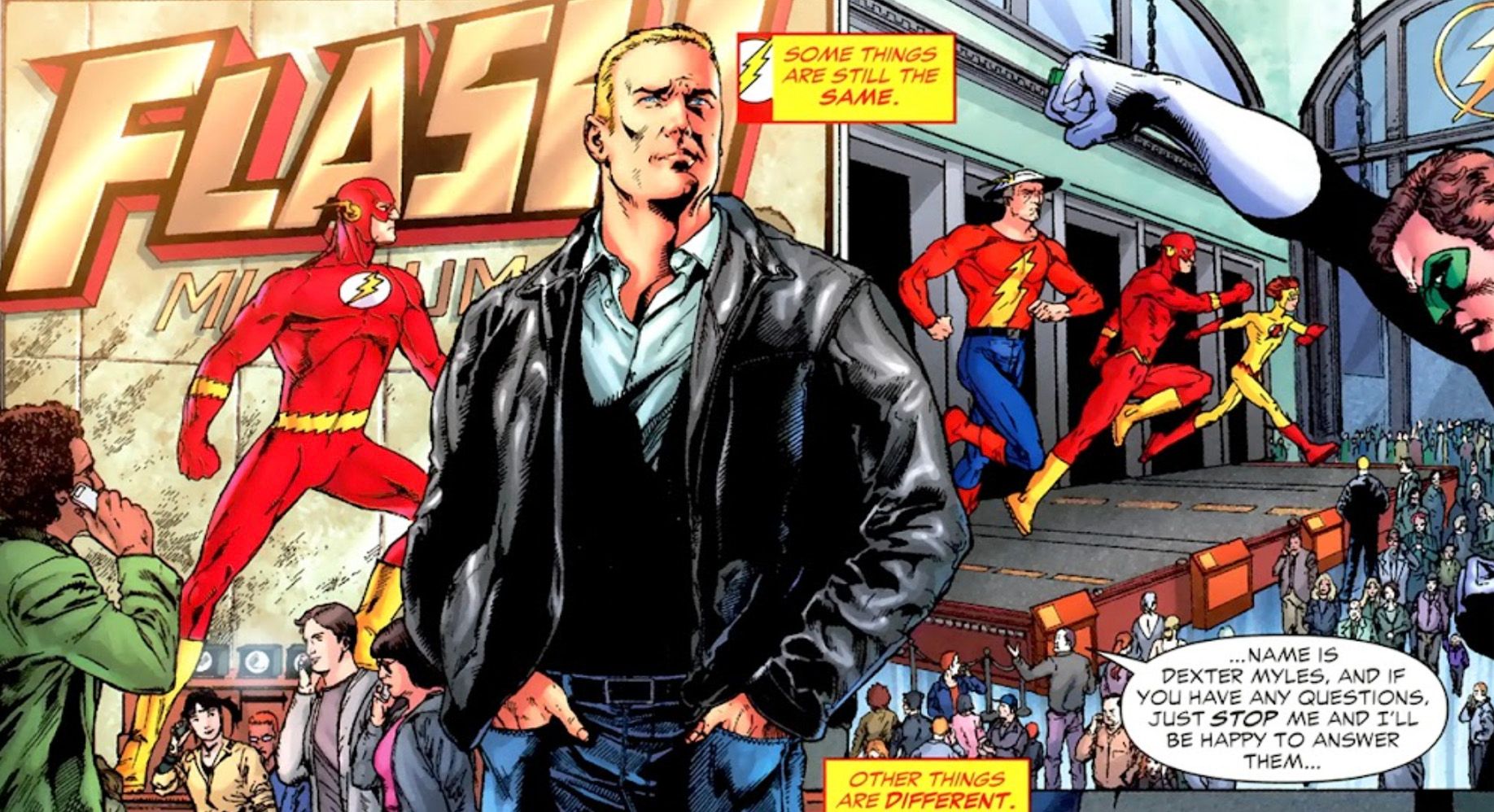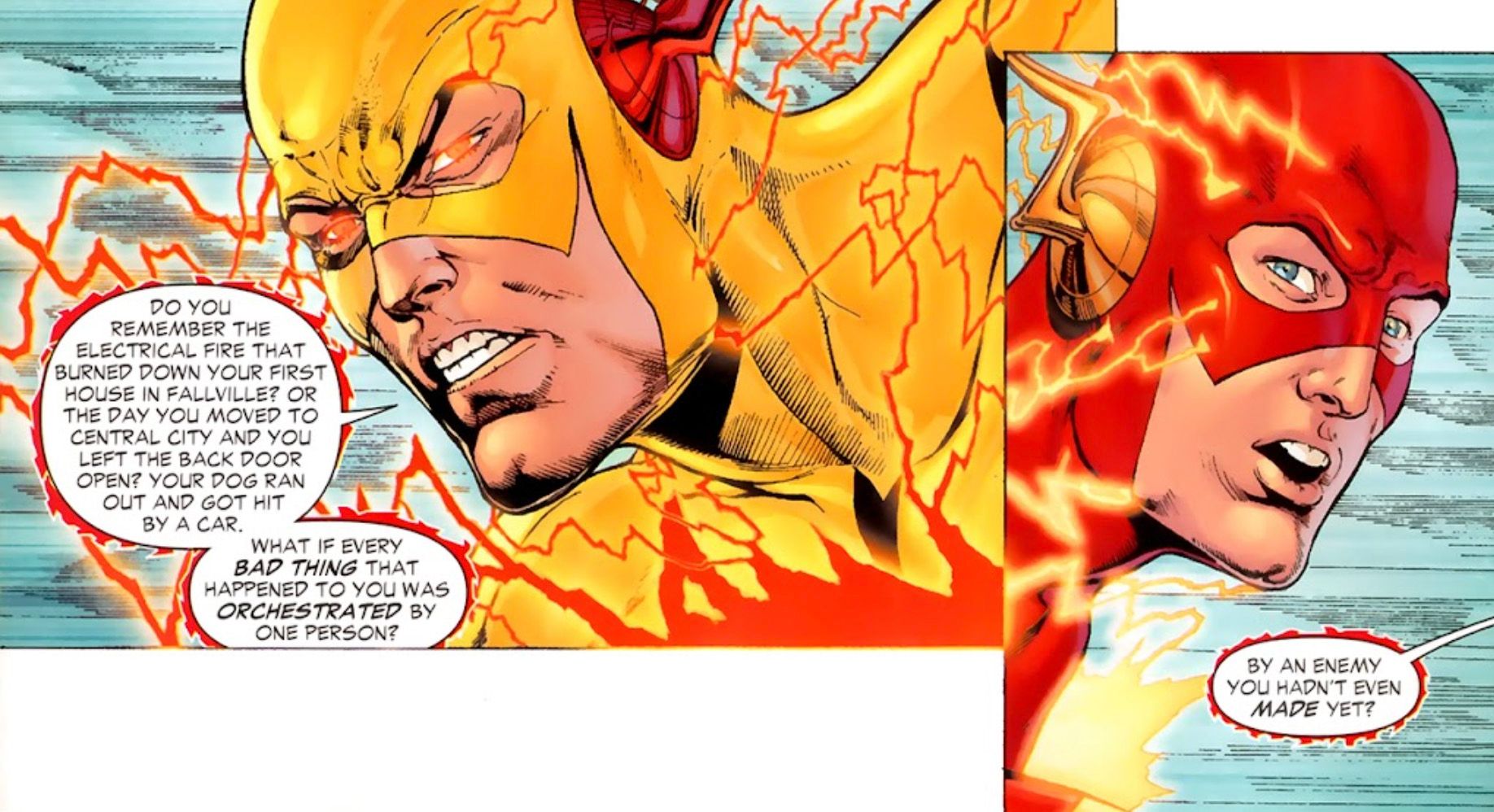Over the years, the Flash has become one of the most recognizable superheroes in the world, stemming from appearances in animation, video games, television series, and more. The character has gone through many incarnations, with several individuals taking on the mantle over its long history. In recent years, the version that has arguably gained the most notoriety is Barry Allen, the second Flash, whose origin story has become well known among audiences. However, what most don't know is that his backstory was once much different.
Barry Allen made his comic book debut in Showcase #4 (By Robert Kanigher, Carmine Infantino, Joe Kubert, Gaspar Saladino, and Julius Schwartz) in 1956 and met his demise in 1985's Crisis on Infinite Earths. It wasn't until nearly 25 years in Final Crisis #3 (By Grant Morrison, J.G Jones, Alex Sinclair, and Rob Leigh) that he would return, bringing with him a revised origin story that would substantially change his lore.
Barry was a forensic scientist who received his powers in a lab accident in which lightning struck him, causing a vat of chemicals to douse him. After realizing that he now had super speed, Barry donned the mantle of the Flash, naming himself after his favorite comic book superhero. However, differentiating the Silver Age version of the character from his modern incarnation was the fact that both of his parents were alive. Barry was on good terms with his parents throughout his life, and they were involved in a number of convoluted storylines, eventually learning that their son was the Scarlet Speedster. In fact, Henry and Nora Allen were alive until well after their son died in the crisis.
Further, setting things apart was that Barry was not an only child as his mother had twins, however, they were separated at birth and his brother was given to a woman named Charlene Thawne. As such, Eobard Thawne, the Reverse Flash was a collateral descendant of Barry's. The Flash would go on to snap Thawne's neck after he threatened his fiancé Fiona Webb. Ultimately, many of these aspects would change when Barry came back to life.
The Flash: Rebirth (by Geoff Johns and Ethan Van Sciver) saw Barry fully return, and along with him came the debut of his new origin story, in which his mother was mysteriously killed, and his father was blamed for the crime. His father would go on to die in prison and the case would remain unsolved for years. It would later be revealed that Eobard Thawne had gone back in time and killed Nora Allen, as well as orchestrated other events that would make Barry's childhood miserable. The ramifications of these events would run deep, as they would lead to the events of Flashpoint, and ultimately the New 52, though one has to wonder if the change was necessary.
The majority of superheroes are born out of some sort of personal tragedy, however, Barry originally donned the mantle of the Flash out of a sense of selflessness. Through media like The Flash television series and the upcoming feature film, his tragic origin is most well-known by audiences, though it takes away from what made him unique as a character, likening him to heroes like Batman. He was always interested in helping others rather than being driven by a personal vendetta.
Following the reboot of the universe, this became Barry's permanent origin and the character always had a chip on his shoulder as he tried to solve the murder of his mother and clear his father's name. Interestingly, this wasn't the first time the company added tragedy to a hero's life, as Superman's loving parents were alive for many years into Clark's superhero career before being retroactively killed off, giving Superman his own sorrow to overcome. Overall, one has to ask, do individuals need to experience a personal loss to become a superhero, or can they successfully do so out of an inherent desire? Barry Allen was once an example of this, however, those days are long gone.



